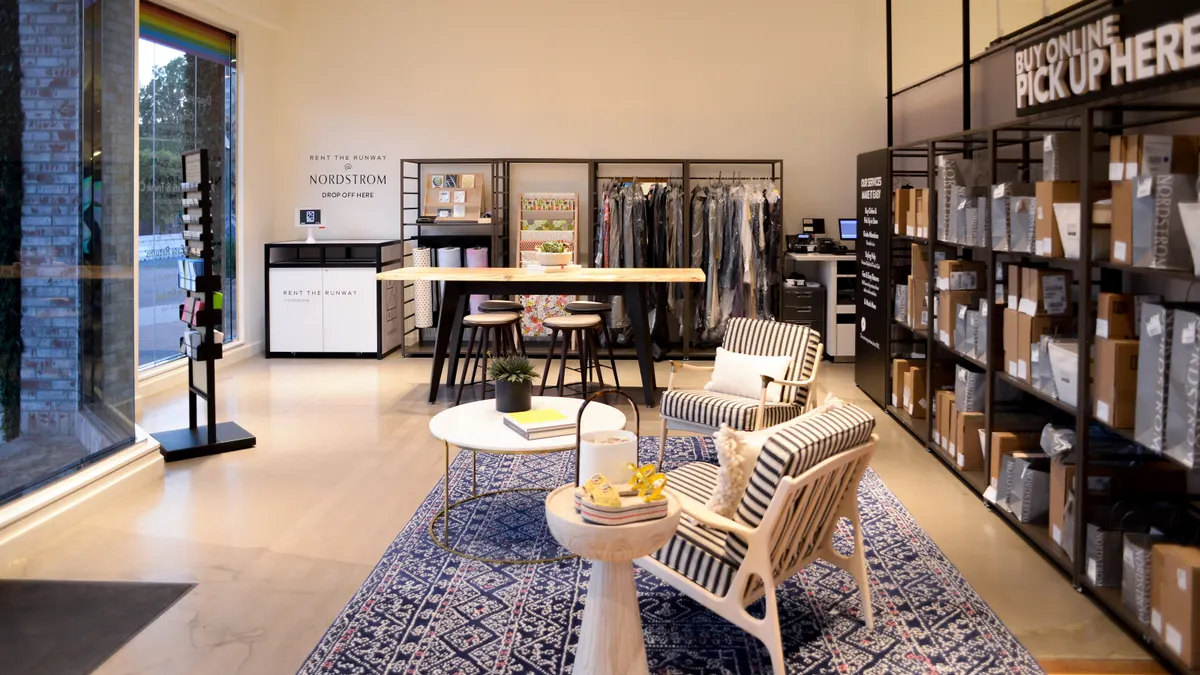Dive Brief:
-
Nordstrom on Thursday said that it's promoting company veteran Teri Bariquit to Chief Merchandising Officer, a newly created role.
-
She will lead both full-price and off-price merchandising and report to co-President Pete Nordstrom, according to a company press release.
-
Bariquit has served Nordstrom in merchandise planning and inventory since 1986, according to her LinkedIn page. Since 2012, she has been executive vice president, merchandise planning and solutions, where "she supported merchandise planning, inventory deployment, solutions and strategic capabilities across all channels," the company said.
Dive Insight:
With this move, Nordstrom is signaling both confidence in its merchandising chops and the need to elevate those operations.
"We believe we have the best merchandising team in retail," Pete Nordstrom said in a statement, adding that Bariquit has merchandising "in her DNA."
Nordstrom is one of the most innovative department stores in the U.S. The retailer has employed a tech-quisition strategy that has helped it reach new customers, refine its merchandising and explore cutting-edge retail concepts. Those include in-store pop-ups with digital natives, a tie-up with Rent the Runway and its merchandise-free "Local" shops, which are in expansion mode. In recent years, the company acquired HauteLook and Trunk Club and has invested in disruptors like the now-defunct Shoes of Prey and Bonobos. Nordstrom was also one of the first to establish an off-price chain, in the 1970s.
But that hasn't spared it from challenges in apparel sales. On Wednesday, the company reported that total second quarter net sales fell 5.1% year over year, with full-price net sales down 6.5% and off-price net sales down 1.9%. Total company digital sales increased 4% and were 30% of the business. Net earnings were $141 million, down from $162 million the year prior. Even its Rack off-price unit was a let-down.
The retailer has entered the second half of the year with inventories in lean shape, but merchandising remains a stiff challenge as consumers buy less apparel and spend less when they do. UBS analysts last month deemed the department store a "no-growth retailer," citing trends for less expensive and more casual attire.
Pete Nordstrom on Wednesday acknowledged some of those challenges. Speaking to analysts, he said that fashion cycles are shorter and past sales less informative.
"So we've always had a pretty aggressive program on trying to identify and amplify emerging brands," he said, according to a Seeking Alpha transcript. "One of the things we need to do is identify new emerging brands and amplify them quickly. It isn't a matter of test and learns over a couple of years, a couple of stores in time. ... And the same holds true for perhaps some legacy brands that are declining. And we have some very big built up established businesses with some legacy brands, where it's going the wrong way. So our teams have to be really good editors. They've got to be curious and they can't really use last year so much as a guide."















